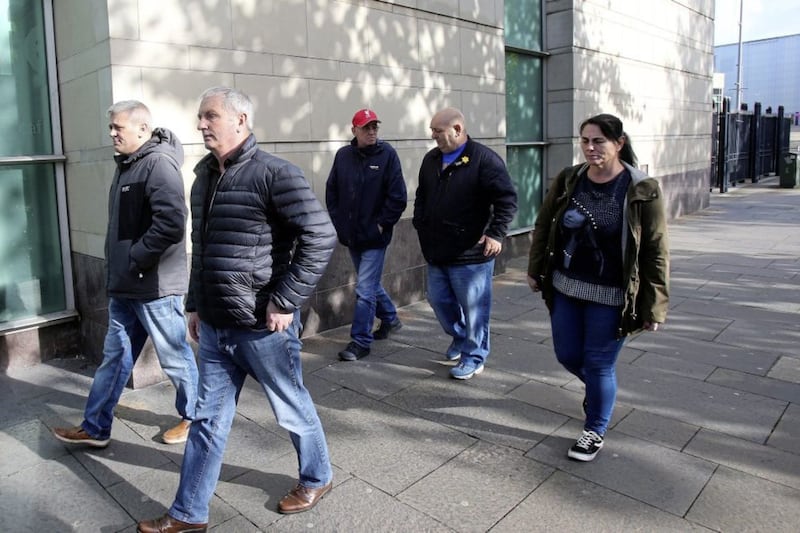THE not guilty verdict in the 'trial of facts'' against veteran republican Ivor Bell was widely anticipated, hence a media interest that spilled out from the usual press bench into the body of the Court 16 at Belfast Laganside.
In the public gallery were members of the McConville children along with staff from Wave Trauma Centre, a victim's group that has supported them for almost 20-years.
For them the case has dragged on for more than five painful years with any hope of a conviction now dashed. They have now called for a public inquiry into the circumstances of their mother's abduction, murder and secret burial in 1972.
Reporting restrictions were lifted yesterday allowing the full and quite unique circumstances of the case - that centred around the Boston College oral history project - to be made public.
The Public Prosecution Service has defended the decision to bring charges against Bell, now 82 years of age, and deemed medically unfit to participate in the proceedings.
However, Justice O'Hara was scathing of the evidence saying taped interviews where there was "overwhelming" evidence it was Mr Bell speaking on the recordings, could not be used as evidence due to the "bias" of interviewer against former Sinn Féin president Gerry Adams and the peace process.
"Everyone who reads about them can form their own view", he added.
It now seems like the end of the road for any criminal case relying on interviews carried out by Boston College interviewer Anthony McIntyre, which have been discredited by the court.
Only one person, veteran loyalist Winston Rea, remains charged with conspiracy to murder in connection with the Boston tapes.
Yesterday's ruling does not necessarily mean the end of that case, loyalist participants in the project were not interviewed by McIntyre but by an academic with no known prejudice or bias.
The prosecution is also expected to produce corroborating evidence in the Rea case.
What it does do however is call into question the ethics of using any material for journalistic endeavour that relies on the testimonies gathered by McIntyre in future.
Rather than provide a record for future generations an academic told the court that the Boston project was now held up as an example of how not to conduct an oral history project.








